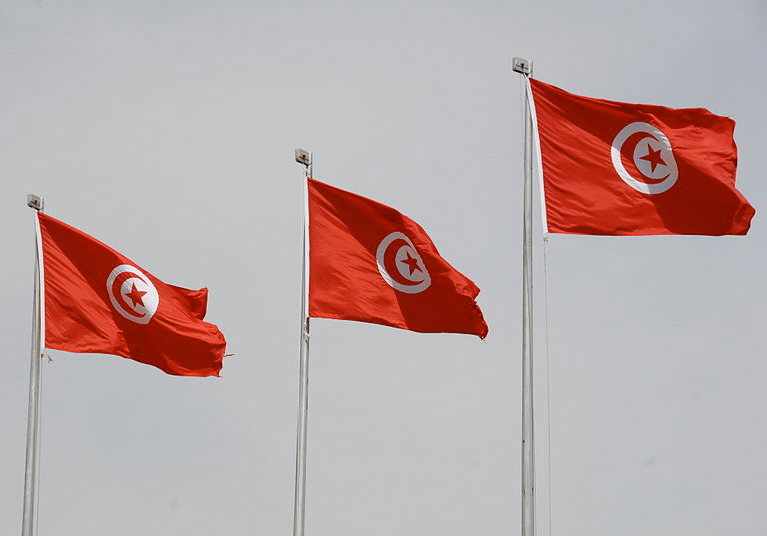Today, the ICJ responded to the Tunisian Government about the Government’s intimidation of Tunisian judges.
The ICJ confirmed that after their Seminar on Judicial Independence and Functions in Tunisia, which took place between 14-24 November 1994, the Tunisian Ministry of Justice exerted direct pressure on participating Tunisian judges to withdraw a document entitled Summary of the Activities of the Course. The document, adopted by the judges on the last day of the Seminar, was the outcome of a rich and highly constructive two-week programme.
According to a Reuters report, Mr. Hafedh Ben Saleh (a Tunisian law professor who coordinates a programme initiated by the Ministry of Justice that includes this Seminar) responded to the ICJ Press Release of 9 December. He stated that the participating Tunisian judges had voluntarily withdrawn their support because the document did “not reflect participants’ views.” In response to Mr. Ben Saleh’s comments, the ICJ released the following information.
On 29 November 1994, the ICJ received a letter faxed from the Centre d’Etudes Juridiques et Judiciaires of the Tunisian Ministry of Justice. The letter declared that participants met after the Seminar and voiced their “surprise” at the document and nullified it. A new document, which significantly altered the original, was annexed to the letter.
The ICJ immediately contacted participating judges to understand what had happened. The ICJ learned that after the Seminar the judges were individually called to the Centre d’Etudes Juridiques et Judiciaires of the Ministry of Justice and asked to sign a letter withdrawing the original document. The judges said that they signed the letter under pressure, but they never saw the new document.
The ICJ then attempted to initiate a dialogue with Tunisian authorities to resolve the problem. When no adequate answer was received from the Government, the ICJ issued a Press Release on 9 December 1994 condemning this direct attack on the independence of the judiciary.
A brief look at the two documents clarifies the controversy.
First, the original document, Summary of the Activities of the Course, faithfully reflected the participants’ views; it was a collection of reports written during the Seminar by the participants themselves. The original document was thoroughly discussed and approved during the final day of the Seminar. The judges’ approval of this text was not only unanimous and vocal, it was also videotaped.
Second, after verifying the facts by communicating with several of the judges, it was found that the participants had not voluntarily met after the Seminar; they were called individually to the Centre d’Etudes Juridiques et Judiciaires of the Ministry of Justice and pressured to withdraw their support of the document.
Third, the new text substantively altered the participants’ conclusions expressed in the original Summary of the Activities of the Course. A brief comparison between the two texts illustrates the political nature of the alterations.
- The distortion of the original text is apparent from the first line. The heading of the original document is the Seminar on Judicial Functions and Independence in Tunisia, the title of the Seminar.
The heading of the altered document is the Republic of Tunisia, the Ministry of Justice and the (Ministry’s) Centre d’Etudes Juridiques et Judiciaires. This title leaves little doubt as to who is its author.
- Under the first sub-heading, Judicial Independence and Human Rights, the original document spells out 2 and 1/2 pages of concerns of judges about judicial independence common to many countries of the world. Participants proposed concrete measures to overcome them in the Tunisian context.
Among participants’ concerns was the composition of the High Council of the Judiciary, a constitutional body headed by the President of the Republic which nominates, dismisses, and promotes judges. Presently, a majority of members of the High Council are appointed. Participants called for a greater number of directly elected members and for greater financial and legal independence of the High Council.
Participants also called for “the adoption of the principle that judges cannot be transferred without their consent. If it is necessary to make exceptions, the transfer should take place according to objective standards that are applied equally.”
Under the same sub-heading, the altered document omits such concerns and generally praises the independence of the judiciary in Tunisia. Specifically praising the advances made by the President of the Republic, the document heralds the provision of automobiles and modem equipment to senior judges. It should be noted that all of the participants were young judges and that these privileges do not concern them.
- Under the third sub-heading, Criminal Law, the original document highlighted the need to control police records concerning the date and time of arrest. Without proper control of these records, there is the potential for abuse. The original document further proposed that the prosecutor’s office be given the power to check such police records and that lawyers attend the first interrogation of an accused in police custody.
These concerns and suggestions were omitted from the second document.
- Under the fourth sub-heading, Constitutional and Administrative Law, the original document contained a three-page examination of the advantages and problems of the administrative court system in Tunisia.
The altered document reduced this deep discussion to two short paragraphs, containing two sentences praising the President of the Republic.
The ICJ regret that by making alterations to the original document, the Tunisian Ministry of Justice attempted to politicise the debate of a scientific seminar of judges. While concerned about these alterations, the ICJ are more concerned that judges were pressured to subscribe to them. “Those who dared today to pressure judges to withdraw a document may dare tomorrow to pressure them to pronounce innocence or guilt;’ stated Mr. Adama Dieng, ICJ Secretary-General. “The mission of the ICJ is to preserve the independence of the judiciary throughout the world so that such fundamental rights are respected.”





